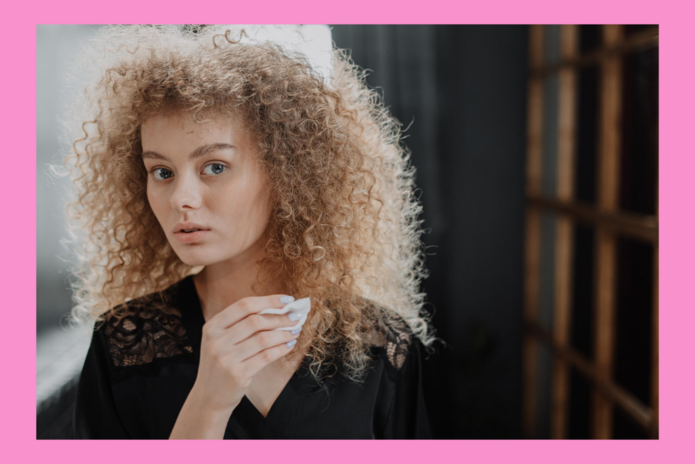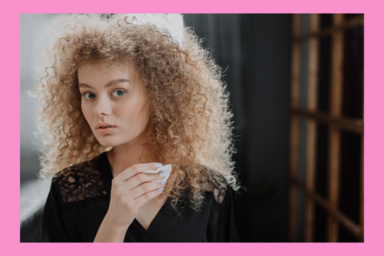My curls come from my dad. My family’s hair flattened with age, and my strawberry brown ringlets are the only surviving curls in my family. As a young child, my hair was as wild as my spirit, springing from every direction and bouncing with the slightest movement. I never felt out of place for having curls — not until people pointed out to me that I should.
My mother started straightening my hair when I was seven years old. As someone who had never dealt with finger coiling or diffusing hair, she thought that maintaining my curls was too extensive. She was embarrassed by my hair and would constantly compare it to my friends’ shiny, slick hair. She was terrified that my frizz was somehow a negative reflection of her. I woke up every morning before the sun rose to tediously eradicate my curls, the air in my bathroom riddled with smoke, heat protectant and tears.

As time went on, my hatred for my curls grew stronger. Why was everyone but me born with beautiful, straight hair? Despite the excessive amounts of straightening shampoos and sprays that I used, the Florida humidity typically left my hair incredibly frizzy, and my curls fought to be seen. As elementary gave way to middle school, classmates and strangers began to excessively comment and form opinions on my anomalous hair. My hair gained its own nickname — “rats’ nest.”
The vicious cycle of forcing and pleading with my hair to conform always resulted in utter failure, but it nonetheless continued until my senior year of high school. After I briefly mentioned to some friends that my hair wasn’t naturally straight, I was bombarded with questions about why I didn’t embrace my curls. I brushed it off because I didn’t want to explain the lifetime of shame, repression, and disgust that I was taught to feel about my hair. However, I couldn’t ignore the voice in my head that also questioned why I wasn’t embracing my authentic self. After all, I didn’t pick the hair that I was born with.
The day after this conversation with my friends, I went to school for the first time since the first grade with my natural hair. After eleven years of absolutely destroying my hair, I gained the courage to discard my previous desires to conform, and I embarked on a journey of self-love. While I thought I would be met with judgmental stares or ridiculing questions, everyone showered me with compliments and stood in line to bounce my curls. Two years later, and I haven’t straightened my hair since.

I thought my struggle was unique, but as I get older, I realize that’s far from the truth. After writing a piece about struggling with my curly hair, four female classmates in my creative writing class commented on having a similar upbringing and still struggling to go natural. Some of my best friends had beautiful curls as kids, only to lose them after straightening their hair for years. My battle was mostly a silent one, something that I didn’t disclose or discuss with anyone. I started to think about the countless number of girls that also silently struggle with feelings of rejection, inferiority, and hopelessness because their hair does not fit society’s standards of “beauty.”
As I became more distant from the straight-haired version of myself, I slowly became enraged. Not because of what I went through, but for the fact that society deems it acceptable to degrade women on something completely uncontrollable, like their hair. Does the texture and style of someone’s hair transcend the content of their character? Is untamable frizz a reasonable excuse to shy away from befriending someone? These seem like ridiculous questions, but I feel compelled to ask them after witnessing countless tears shed and hearing numerous pleas from girls with natural curls about how they desperately wish they had straight hair. Not because their hair required tedious care, but because they’re tired of being looked down upon for the hair they’re born with.
Curly hair can be extremely daunting, but research and lots of experimentation can help pave your way to the curls you never knew you wanted. Befriending products and tools to straighten your hair may provide surface-level happiness by allowing you to conform and feel accepted among the sea of straight hair, but it can also leave you feeling far from authentic. As someone that’s now defined by their curls, I couldn’t imagine picking up a straightener again.
So, to my fellow curly girls — as soon as we’re able to understand our curls, we’re taught to hate them. Don’t let that be your narrative.




